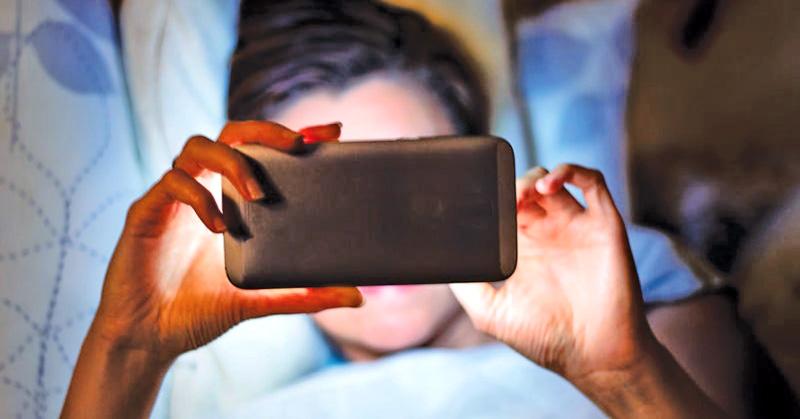
With more than one billion people using the app each month, TikTok has quickly become one of the most popular social media platforms since launching in 2016.
But a new study has highlighted how some people are becoming addicted to the app – and claims lonely women are the most likely to become dependent.
 Researchers from the University of Trinidad and Tobago analysed 173 TikTok users to identify the most definitive signs of addiction to the app.’Although most users appear to use TikTok in a non-problematic manner, the study demonstrates that the risk of overuse and possible problematic use exists and is associated with maladaptive behaviour that can potentially negatively impact the daily lives of sufferers,’ they wrote in their study.While previous studies have assessed the psychological impacts of other apps including Facebook, until now there’s been fairly little research on TikTok.
Researchers from the University of Trinidad and Tobago analysed 173 TikTok users to identify the most definitive signs of addiction to the app.’Although most users appear to use TikTok in a non-problematic manner, the study demonstrates that the risk of overuse and possible problematic use exists and is associated with maladaptive behaviour that can potentially negatively impact the daily lives of sufferers,’ they wrote in their study.While previous studies have assessed the psychological impacts of other apps including Facebook, until now there’s been fairly little research on TikTok.
In their study, the team set out to investigate whether measures of Facebook addiction were also relevant to TikTok.
The study analysed data from 354 university students, including 173 TikTok users, and 313 Facebook users.
The students completed a questionnaire about Facebook or TikTok, which assessed six criteria – having obsessive thoughts about the app, feeling an urge to use the app, using the app to forget about personal problems, trying to cut down on the use of the app without success, becoming restless or upset when prohibited from using the app, and using the app so much that it negatively impacts school or work.
The results revealed that 6.4 percent of the TikTok users were at-risk of being addicted to the app.
These users tended to score higher on loneliness and extraversion, while females were also more likely to be at-risk than males.
Speaking to PsyPost, Troy Smith, who led the study, said: ‘Although most users appear to use TikTok in a non-problematic manner, the study demonstrates that the risk of overuse and possible problematic use exists and is associated with addiction-like behaviours that can potentially negatively impact the daily lives of sufferers.’
Meanwhile, Facebook users were more likely to score highly for low self-esteem.
‘While similarities exist between the addictive process occurring in Facebook and TikTok there are significant differences in manifestation, predictors, and usage intensity associated with average vs problematic use,’ Smith added. ‘As such, a user can exhibit problematic use on a specific platform and not have the same maladaptive response with the broader category of social media.’
For both apps, the most definitive signs of addiction were that the user became nervous, irritable, anxious, or showed strong feelings of sadness when deprived of access to the app.
The researchers hope their findings will spark further studies into TikTok addiction.
‘Current literature on problematic use of TikTok is limited, however, the validation of a problematic use scale for TikTok creates an opportunity for other researchers to study the phenomenon,’ Smith concluded.
‘This is important since the use of a valid scale adds credence to future work and a standard measure means that studies can be compared and patterns more easily identified.
